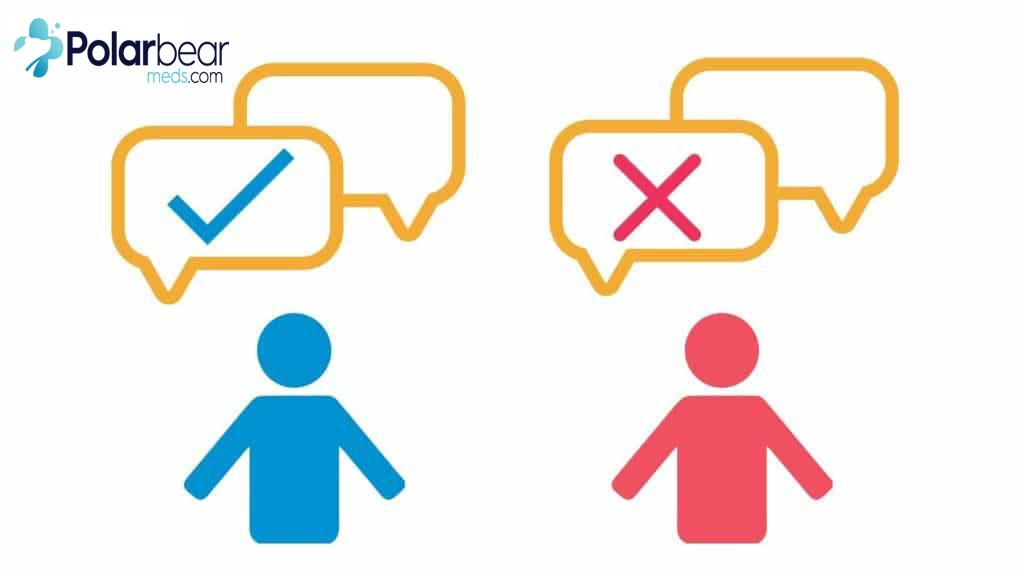Common Misconceptions about Diabetes

People with diabetes can live a long, healthy life when equipped with the right treatments. Unfortunately, however, there are many misconceptions surrounding diabetes — what it is, what it involves, and its treatment options. These misconceptions feed current stigmas and can be particularly harmful when you or a loved one first get a diagnosis.
People with diabetes need the right sources to obtain the medication they need and the necessary information to manage their condition.
ArcticMeds is an online prescription referral service that makes it possible to order insulin online from Canada safely, efficiently, and securely. We strive to provide people with diabetes with the resources they need to manage their diabetes.
To set the record straight and provide some insights, we’ve debunked some of the most common – and damaging – misconceptions surrounding diabetes and insulin.
MYTH: All Diabetes is the Same
Because both diabetes types are chronic diseases that impact your blood sugar, many are under the misconception that all diabetes is the same. The reality is that the two types of diabetes are inherently different.
 TRUTH: Type 1 & Type 2 Diabetes Are Very Different
TRUTH: Type 1 & Type 2 Diabetes Are Very Different
An individual can be diagnosed with either type 1 or type 2 diabetes. While both conditions directly involve the body’s ability to produce insulin, they are inherently different.
Type 1 diabetes is categorized as an autoimmune disease, whereas type 2 diabetes is not.
When you have type 1 diabetes, your body does not produce any insulin – the naturally occurring hormone that helps regulate your glucose levels. People with type 2 diabetes do produce insulin, but their body does not properly absorb it.
MYTH: Type 2 Diabetes Isn’t Serious
Because not all type 2 diabetics take insulin, people sometimes believe that this type of diabetes is not severe and doesn’t require treatment.
 TRUTH: Type 2 Diabetes Needs to Be Monitored & Treated
TRUTH: Type 2 Diabetes Needs to Be Monitored & Treated
Type 2 diabetics make up 90% of the diabetic population. The reality is that type 2 diabetes is a serious medical condition that requires treatment. In some cases, people with type 2 diabetes require insulin. However, in all cases, an individual with type 2 diabetes will need to monitor their health and blood sugar.
MYTH: All Insulin is Expensive
According to the BBC, a vial of insulin costs $300 in the United States. While it is true that insulin boasts a hefty price tag in America, the medication is far more affordable in other countries.
 TRUTH: You Can Order Affordable Insulin from Canada
TRUTH: You Can Order Affordable Insulin from Canada
The good news is that, although insulin prices are exorbitant in America, they differ from country to country. The same vial of insulin selling for $300 in the United States retails for $30 in Canada.
You can order safe and affordable insulin from Canada online through ArcticMeds. When you order insulin online from ArcticMeds, you can have peace of mind knowing that we ship across the United States with refrigerated express delivery to ensure high-quality medication.
MYTH: It is Illegal to Order Insulin from Canada
Insulin is much cheaper in Canada than in America, yet many are skeptical about ordering Canadian insulin.
 TRUTH: You Can Order Canadian Insulin
TRUTH: You Can Order Canadian Insulin
It is perfectly legal to buy insulin from Canada when you order through a prescription referral service like ArcticMeds that works with certified Canadian pharmacies.
MYTH: You Always Need a Prescription to Buy Insulin
You require a prescription to buy insulin in America, but do you need a prescription to buy insulin in Canada? The short answer is no.
 TRUTH: You Can Buy Insulin in Canada Over the Counter
TRUTH: You Can Buy Insulin in Canada Over the Counter
In Canada, you can buy insulin over the counter at any pharmacy. For this reason, many Americans have traveled in caravans across the border to access more affordable medication in Canada.
That said, if you are looking to order insulin from Canada through ArcticMeds, you will need a prescription written by a medical professional to place your order and have it filled.
MYTH: All Insulin is the Same
Many are under the impression that people with diabetes utilize one insulin analog at all times. The reality is that there are various brands and types of insulin that serve different purposes.
 TRUTH: There Are Different Insulin Types & Brands
TRUTH: There Are Different Insulin Types & Brands
All insulin falls under one of four categories; rapid-acting, short-acting, intermediate-acting, or long-acting analog. Each type plays a role in daily diabetes management.
For example, rapid-acting insulin is taken 10 to 30 minutes before a meal to regulate any elevated blood sugars. This type of insulin can last between 3 to 5 hours. Short-acting insulin analogs are also used before meals but act slower than rapid-acting types.
Conversely, intermediate and long-acting analogs act as background insulin to regulate blood sugar between the peak efficiencies of rapid and short-acting types. The top insulin brands are Humalog® (rapid-acting), NovoLog® (NovoRapid®) (fast-acting), Lantus® (long-acting), and Humulin® (intermediate-acting).
MYTH: All Diabetics Take Insulin
One of the most frequently asked questions about diabetes is whether or not all diabetics need insulin.
 TRUTH: Some Type 2 Diabetics Don’t Take Insulin
TRUTH: Some Type 2 Diabetics Don’t Take Insulin
Not all diabetics take insulin. In fact, according to Health, only 14% of diabetics use insulin. All people with type 1 diabetes (5% to 10% of diabetics) require insulin every day, but not all people with type 2 diabetes (90% of diabetics) need insulin.
MYTH: People with Diabetes Can’t Eat Sweets
Insulin naturally occurs in the body to regulate glucose levels. Because people with diabetes don’t produce insulin (or don’t produce it properly), it is a common misconception that they cannot consume sugar.
 TRUTH: Everything in Moderation
TRUTH: Everything in Moderation
People with diabetes have the right to enjoy a cookie as much as the next person, but like everyone else, their sugar consumption needs to be within moderation. Medical News Today confirms that “people with diabetes can still have sweets, chocolate, or other sugary foods as long as they are eaten as part of a healthful meal plan or combined with exercise.”
MYTH: Exercising is Dangerous for Diabetics
Because exercising can increase your blood sugar levels, some believe that it is unsafe for diabetics to be physically active. The reality is actually the opposite.
 TRUTH: Fitness Is Essential for Diabetes Management
TRUTH: Fitness Is Essential for Diabetes Management
Just like everyone else, people with diabetes benefit from exercise. Fitness and physical activity play an essential role in diabetes management. That said, people with diabetes need to be cautious to check their blood sugar levels before and after exercising.
MYTH: Diabetes Is Contagious
Some are under the misconception that diabetes can be transferred from one person to another, like a virus.
 TRUTH: Diabetes Is Not a Virus
TRUTH: Diabetes Is Not a Virus
Diabetes is not a virus; it is an autoimmune disease. Healthline cites diabetes as a non-communicable disease, which means it lasts for a long time and cannot spread from one person to another.
